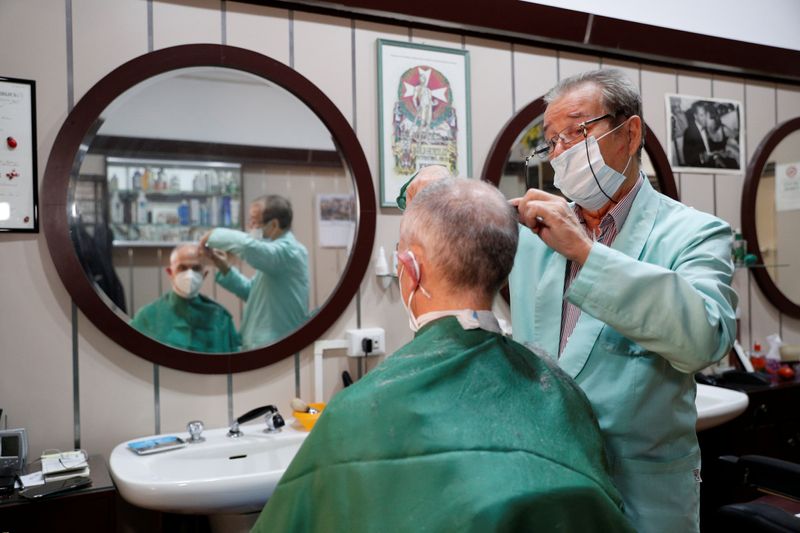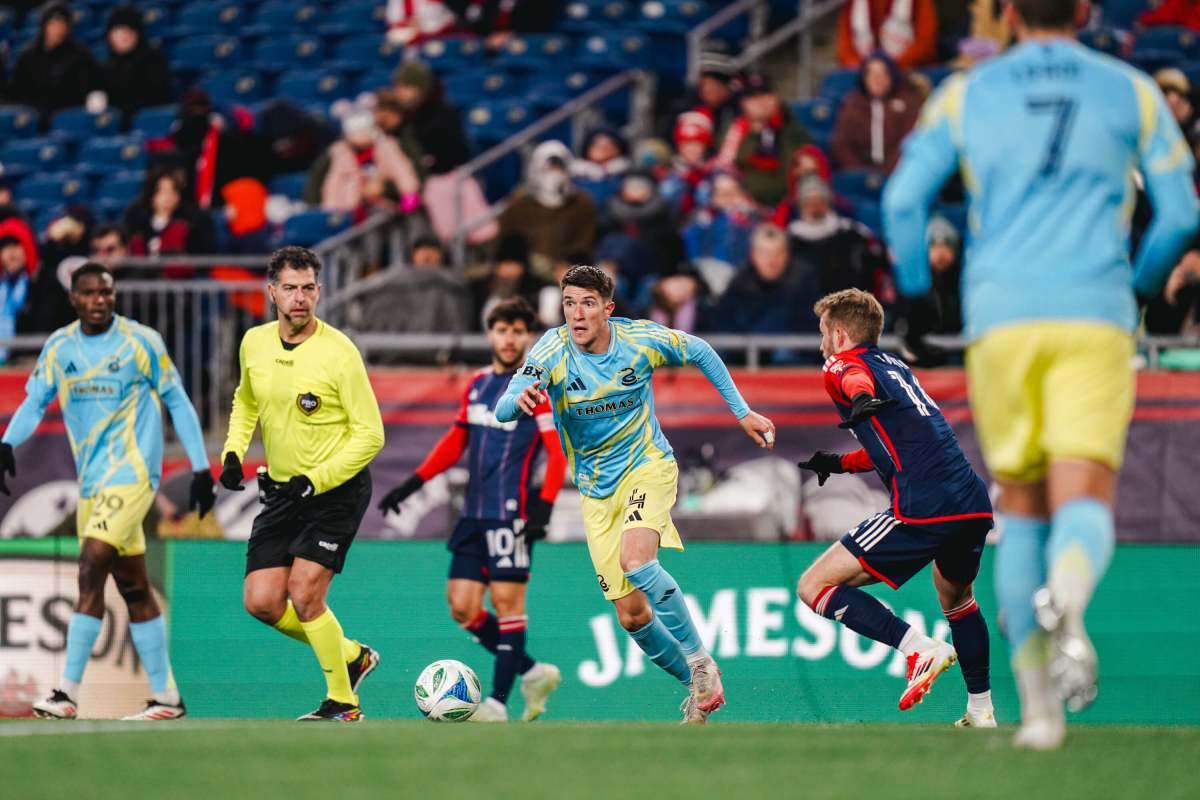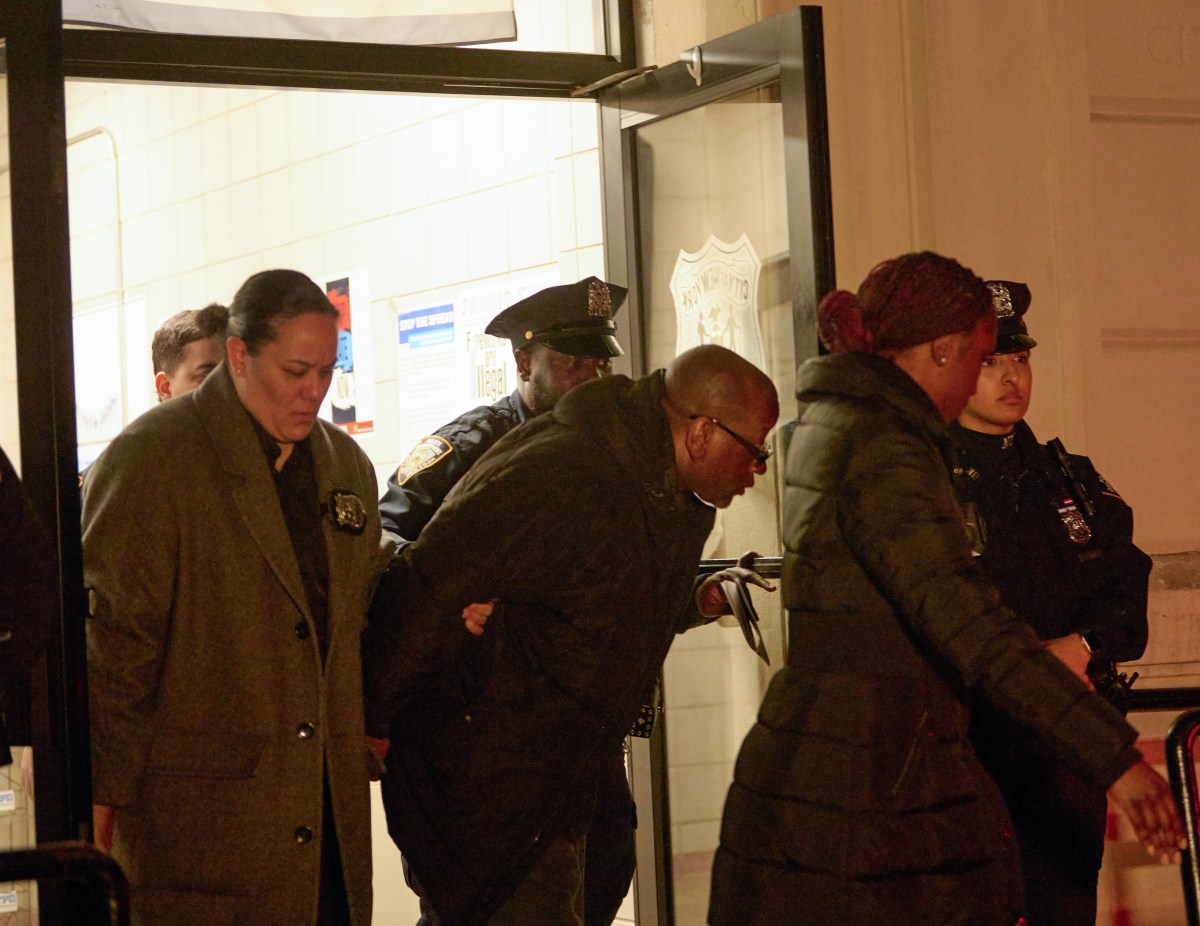ROME (Reuters) – In nearly seven decades in the barber business, Luigi Pinzo has seen Italy go through some bad times, from myriad recessions to political assassinations, but it took the coronavirus to force him to hang up his scissors.
Pinzo is 80. He first starting working in a hairdressers when he was 12, sweeping the floors and brushing down clients’ jackets, before going on to open his own barber shop in a well-to-do Rome neighbourhood in 1977.
With a loyal roster of clients, Pinzo’s business was thriving until February when COVID-19 hit, keeping his patrons away and instilling a fear of infection.
“People are staying at home and I am working a lot less, and then there is the fear. Given my age, I worry I could catch this virus at any moment,” said Pinzo, wearing his trademark lime green jacket. “It is sad, but that’s the way it is.”
Business association Confcommercio estimates that up to 40% of shops in the capital Rome have been forced to close because of the pandemic, leaving streets dotted with empty windows.
Pinzo’s small establishment, called “Luigi”, fell victim of the mass cull on Oct. 31. Prior to that, the shop had barely changed over the decades, sporting three, polished leather chairs and a collection of colognes kept in a glass cabinet.
Pride of place on the wall was a certificate awarded by the president of Italy in 1993 declaring Pinzo a Knight of the Republic in recognition of his long, successful career – one of the highest accolades handed out by the state.
“I don’t know of any other barbers in Rome who have kept at it like me for 68 years,” said Pinzo, who started work as a child in central Italy before moving to Rome when he was 16. “I was always very ambitious. I was always looking to improve.”
When Pinzo started out, long apprenticeships were the norm to master the craft of scissorwork. Now, he says, people open shops and wield electric razors with little formal training.
“The profession has lost its soul. It has become mechanical,” he said. “When a client comes in you have to study them, how they dress, how they are and then work out the right haircut for them. It is an art, but it is dying out.”
This attention to detail won Pinzo a faithful following over the years and when word spread that he was retiring, clients streamed in for a final cut.
“I will remember the history that there is in this shop, the lovely time you could have staying here for 30 minutes to relax in the company of a person who comes from another time,” said long-standing customer Jacopo Romagnoli.
(Additional reporting by Cristiano Corvino; Editing by Janet Lawrence)






























